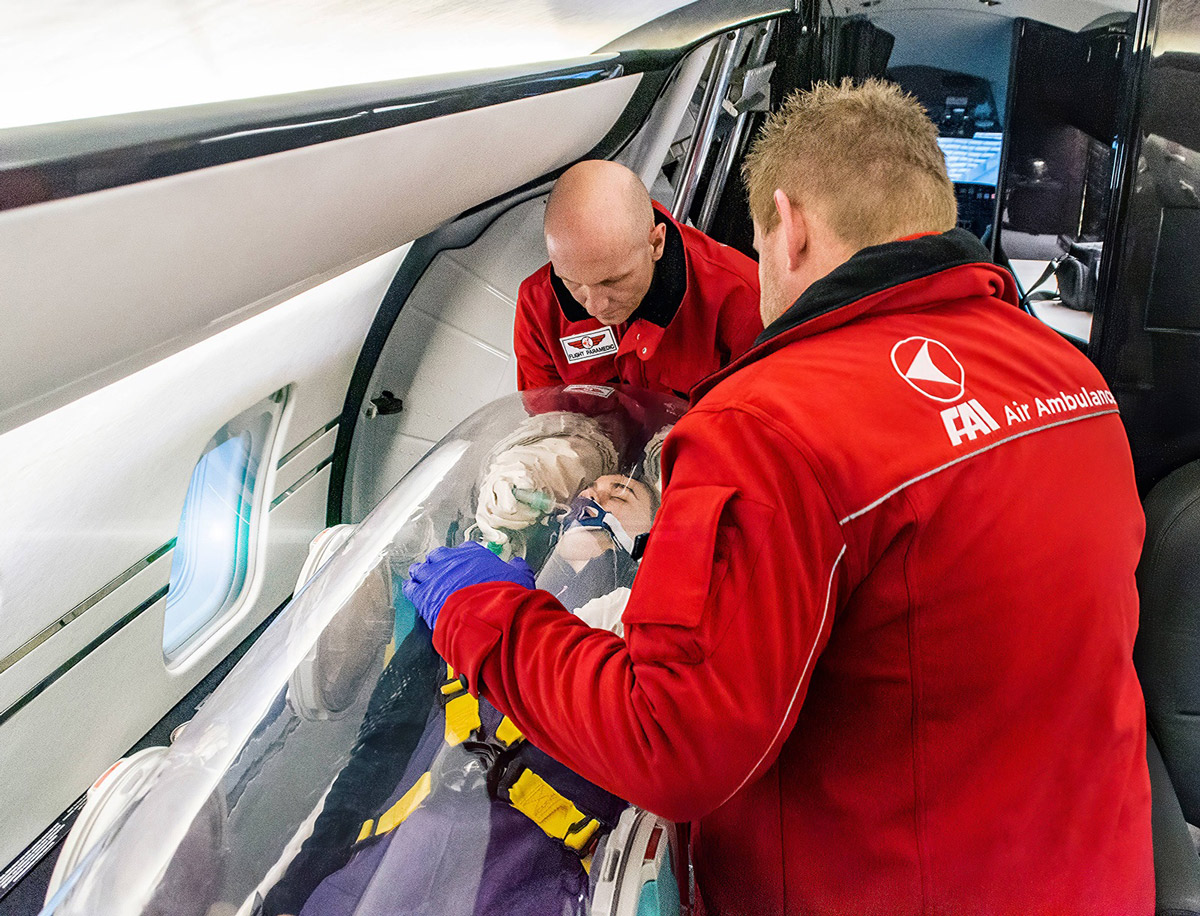Safe transport of contagious patients is essential to in order to utilize hospital capacity during the second wave of Covid19
Safe transport of contagious patients is essential to in order to utilize hospital capacity during the second wave of Covid19. Today President Ursula von der Leyen announced that the European Commission are making € 220 million available to finance safe cross-border transfers of patients.
– We experience that finance is at a critical point. Luxemburg Air Ambulance are crowd-funding EpiShuttles, while Greece ambulance service EKAB depend on well doers to finance EpiShuttles. European patient transport is scrambling for money to fund safe isolation and transport. Time is of the essence to make these crucial funds available to organizations, Ellen Cathrine Andersen, CEO of EpiGuard says.

“The spread of the virus will overwhelm our health care systems if we don’t act urgently,” President Ursula von der Leyen said. She encourage member states to share data on ICU capacity, data onn where capacity is lacking, and to increase cross border patient care.
EpiGuard agrees and encourage the EU to make financing available as fast as possible.
УWe must be able to transport COVID-19 patients to where ICU capacity is available. Only when safe transport is in place can we utilize the full capacity of the entire health care system and ensure treatment for everyone, Ellen Cathrine Andersen, says
УHealthcare workers are making an admirable effort transporting patients. However, disinfection of helicopters, aircraft and ambulances after each transport takes so much time, the whole transport system may collapse,Ф Ellen Cathrine Andersen, CEO of EpiGuard says.
The EpiShuttle provides a completely sealed barrier between an infectious patient and the surrounding environment, protecting both craft and professionals. At the same time, it allows patient monitoring and full intensive care treatment during transport, including emergency procedures like intubation and insertion of central venous catheters. It is cost efficient and can be re-used for next mission.
УEpiGuard is currently experiencing a surge in demand for the EpiShuttle. With the numbers of confirmed cases increasing, the need for safe transport of patients is rising. Current demand witnesses Europe in crisis, and EpiGuard will scale up production. The EpiShuttle is NATOs stock listed and CE-marked as a class one medical device. We are prepared and ready to deploy,Ф Andersen says.

